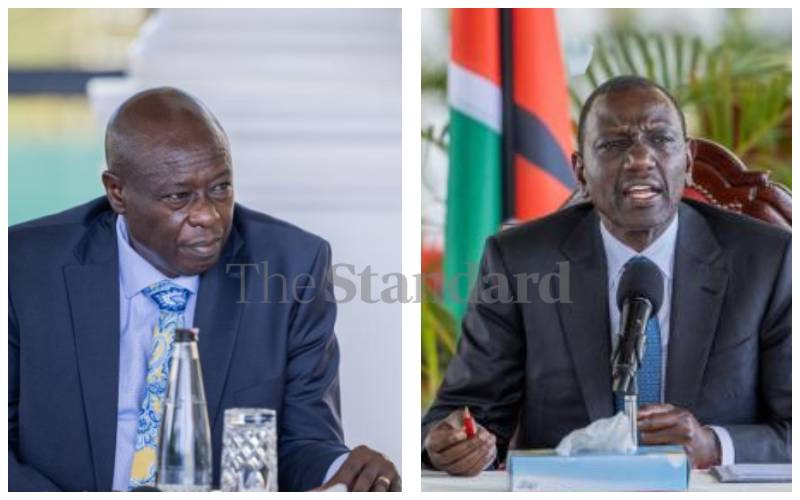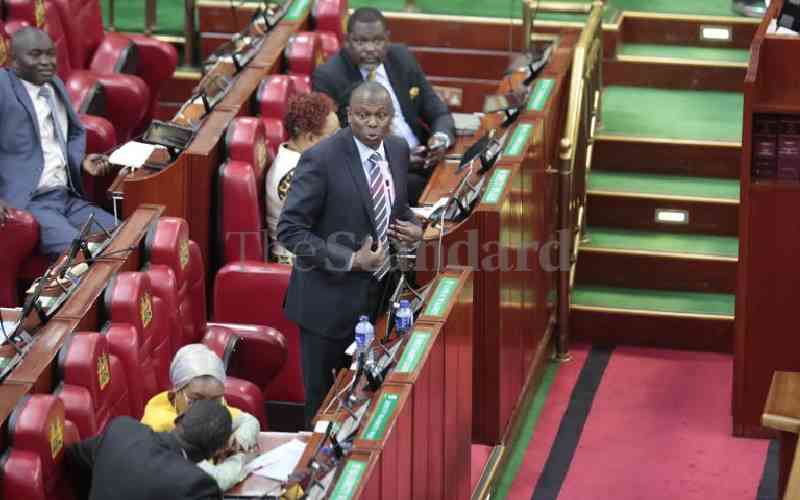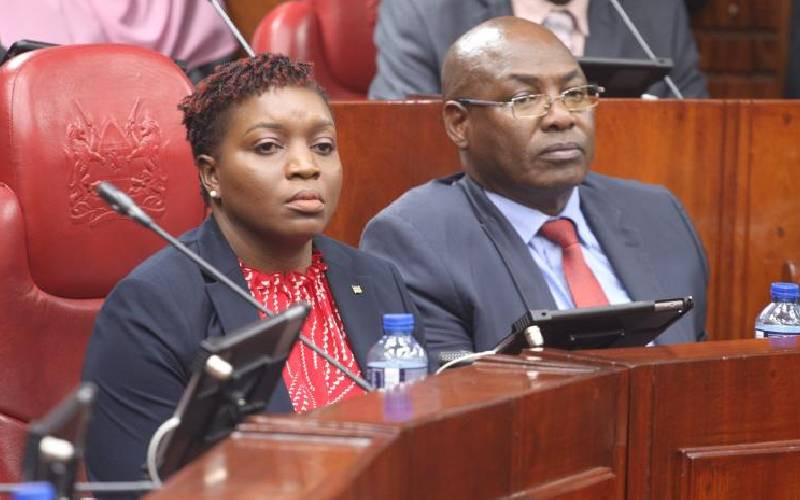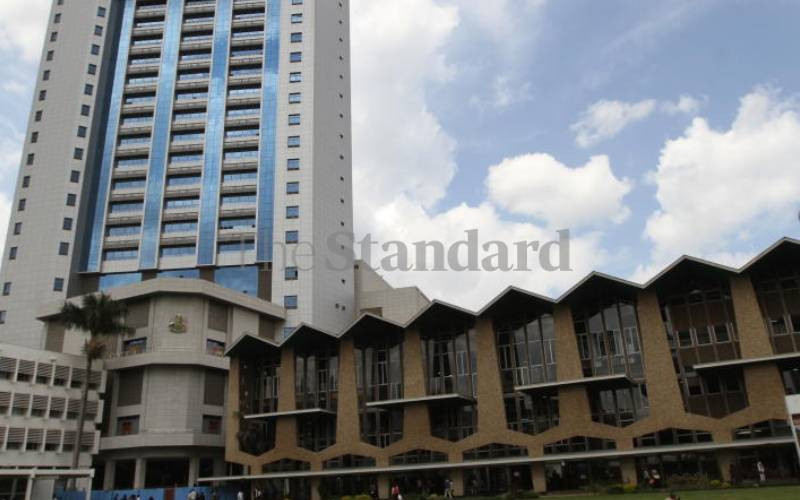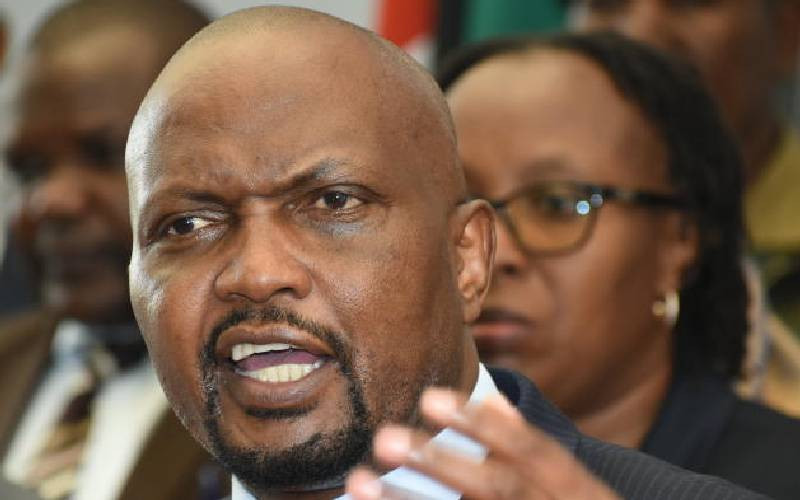All indications are that the Prevention of Terrorism Bill, 2012 now going through its second reading in parliament may once again be thrown out when it comes up for debate.
In a well scripted fashion, the Muslim community has once again come out in stiff opposition to the proposed law, protesting certain provisions within it and the fact that no consultations were done before the Executive approved the Bill.
The other reality is that if Kenya does not pass this law, the country risks sanctions from the World economy, an eventuality that could cripple the country’s financial systems and dealings with the international community. It is a fact that the ongoing instability in neighbouring Somalia has serious implications on Kenya’s financial sector and economic stability.
A huge chunk of US dollars derived from piracy activities off the Somalia coast is thought to be finding its way into Kenya. Further, Somalia has not had a Central Bank for all the time it has been at war with itself meaning that its monetary activities have been shifted to Nairobi.
Related acts
In order to safeguard Kenya’s financial system from money laundering and terror financing activities from emanating from Kismayu, there is need to have a law against terrorism financing in Kenya.
While acts of terrorism are illegal in Kenya, there is no law that punishes those engaged in terrorism financing. It is for this reason that anti-money laundering law must be accompanied by that against terrorism financing as terror and money laundering are related and intertwined.
But while some action is needed to fight terrorism, the manner in which this is being done is raising more questions than answers.
The Muslim community maintains that the Anti-terror Bill is part of a wider plot by the US Government to isolate and punish those belonging to the sect. For instance, the Bill allows for interception of private phone conversations and also requires the government to share intelligence with foreign nations and allow it to label individuals and groups as terrorists. Fears are that these wide ranging powers, including seizure of private property suspected to be a conduit for terrorism financing, is an invasion of fundamental rights contained in Kenya’s Constitution.
While we welcome the publication of the Bill, allowing the terror police to tap into private phone conversations could be abused and used to victimize members of the Muslim sect.
Under the Anti-Money Laundering Law, the term ‘suspicious’ transactions is not clearly defined. Similarly, it is not clear what kind of profile authorities will be looking for when flashing out terror suspects.
Draconian
The one reason why Kenyans voted overwhelming for a new Constitution is to stop excesses by the Executive and other arms of Government. Therefore, sneaking back draconian laws that single out a community, gender or race goes against the spirit of Kenya’s new Constitution.
Kenya must work out its own home grown solutions and develop its their own counter-terrorism policies. It has to take into consideration that fact that it is occupied by the Muslim community, which also has relations and roots in neighbouring Somalia.
There is therefore need to look at these unique conditions and develop our own rules with widespread public participation.
Stay informed. Subscribe to our newsletter
It is well known that Kenya’s relatively developed financial system attracts criminal groups and terror gangs who launder money to buy arms.
Taking the proceeds of crime from terrorists, corrupt public officials, traffickers and organized crime groups are one of the best ways to stop them in their tracks. To achieve this objective, the Muslim community must be brought on board so that they participate in the process.
Politicising the anti-terror Bill will only delay Kenya’s efforts to lock out drug traffickers, arm dealers and criminal underworlds from such unstable countries as Somalia and Sudan.
 The Standard Group Plc is a
multi-media organization with investments in media platforms spanning newspaper
print operations, television, radio broadcasting, digital and online services. The
Standard Group is recognized as a leading multi-media house in Kenya with a key
influence in matters of national and international interest.
The Standard Group Plc is a
multi-media organization with investments in media platforms spanning newspaper
print operations, television, radio broadcasting, digital and online services. The
Standard Group is recognized as a leading multi-media house in Kenya with a key
influence in matters of national and international interest.
 The Standard Group Plc is a
multi-media organization with investments in media platforms spanning newspaper
print operations, television, radio broadcasting, digital and online services. The
Standard Group is recognized as a leading multi-media house in Kenya with a key
influence in matters of national and international interest.
The Standard Group Plc is a
multi-media organization with investments in media platforms spanning newspaper
print operations, television, radio broadcasting, digital and online services. The
Standard Group is recognized as a leading multi-media house in Kenya with a key
influence in matters of national and international interest.

